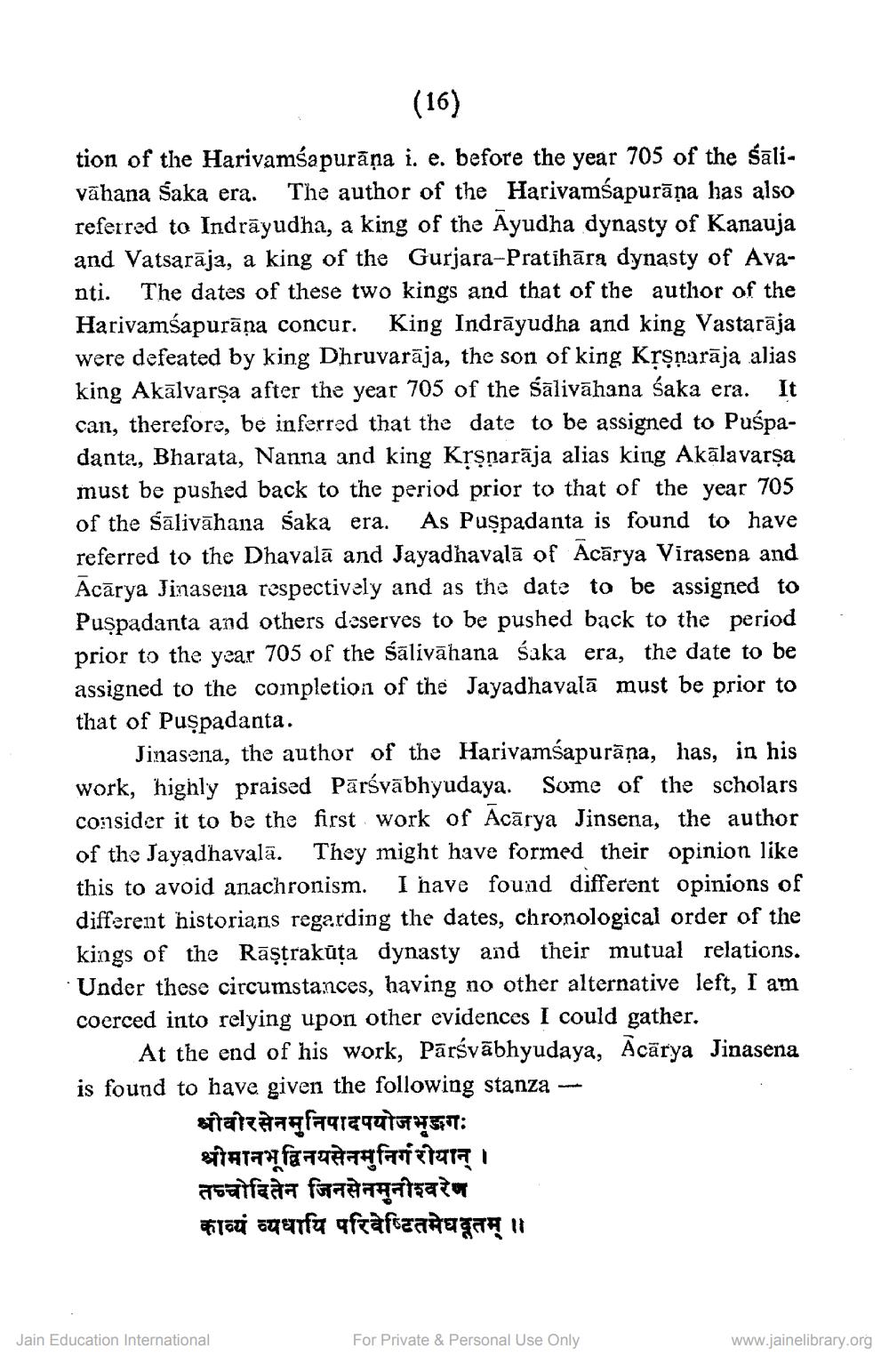________________
(16)
tion of the Harivamśapurāņa i. e. before the year 705 of the sālivāhana saka era. The author of the Harivamśapurāņa has also referred to Indrāyudha, a king of the Ayudha dynasty of Kanauja and Vatsarāja, a king of the Gurjara-Pratihāra dynasty of Avanti. The dates of these two kings and that of the author of the Harivamśapurāņa concur. King Indrāyudha and king Vastarāja were defeated by king Dhruvarāja, the son of king Krşņarāja alias king Akālvarșa after the year 705 of the śālivāhana saka era. It can, therefore, be inferred that the date to be assigned to Puspadanta, Bharata, Nanna and king Kịşnarāja alias king Akālavarşa must be pushed back to the period prior to that of the year 705 of the sālivāhana saka era. As Puspadanta is found to have referred to the Dhavalā and Jayadhavalā of Acārya Virasena and Acārya Jinasenia respectively and as the date to be assigned to Puspadanta and others deserves to be pushed back to the period prior to the year 705 of the śālivāhana saka era, the date to be assigned to the completion of the Jayadhavalā must be prior to that of Puşpadanta.
Jinasena, the author of the Harivamśapurāņa, has, in his work, highly praised Pārśvābhyudaya. Some of the scholars consider it to be the first work of Acārya Jinsena, the author of the Jayadhavala. They might have formed their opinion like this to avoid anachronism. I have found different opinions of different historians regarding the dates, chronological order of the kings of the Rāștrakūta dynasty and their mutual relations. Under these circumstances, having no other alternative left, I am coerced into relying upon other evidences I could gather.
At the end of his work, Pārśvābhyudaya, Acārya Jinasena is found to have given the following stanza --
श्रीवीरसेनमुनिपादपयोजभङगः श्रीमानभूविनयसेनमुनिगरीयान् । तच्चोदितेन जिनसेनमुनीश्वरेण काव्यं व्यधायि परिवेष्टितमेघदूतम् ॥
Jain Education International
For Private & Personal Use Only
www.jainelibrary.org




